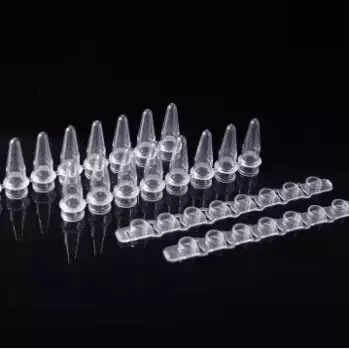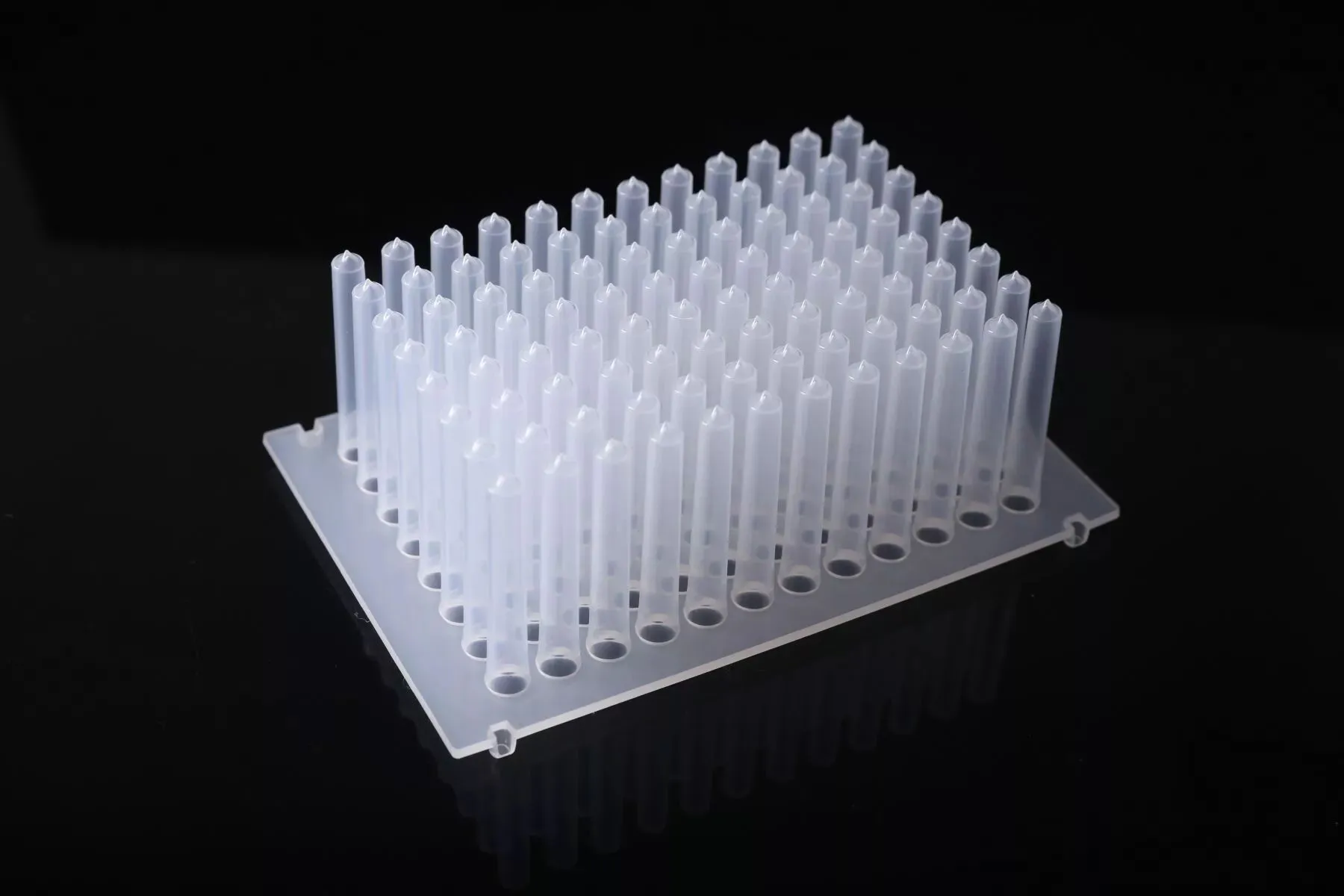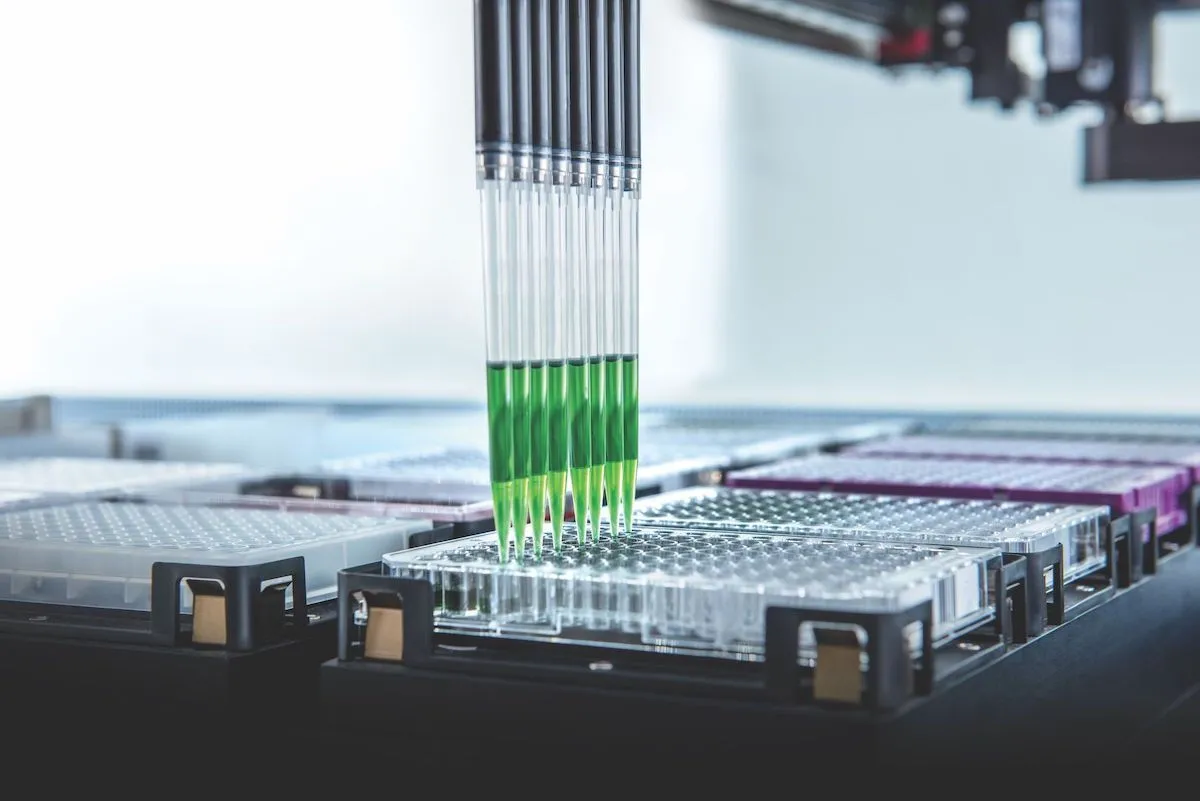The Principles and Applications of 8-Strip Tube PCR Technology
Nov 15, 2023
8-strip tube PCR technology is an efficient and precise Polymerase Chain Reaction (PCR) method that amplifies multiple DNA fragments simultaneously in a single reaction, providing a powerful tool for molecular biology and genetics research. This article will introduce the principles, operational steps, and wide-ranging applications of 8-strip tube PCR technology.
8-strip tube PCR technology is a multiplex PCR method that conducts 8 independent PCR reactions simultaneously in one PCR machine. Each channel can be configured with different primers and temperature parameters, allowing users to amplify multiple target sequences in the same experiment. The key to this technology lies in the design of the PCR machine, equipped with 8 independent heating/cooling modules, enabling precise temperature control for each reaction tube. Through accurate temperature control, 8-strip tube PCR technology achieves efficient amplification of multiple targets.

Operational Steps of 8-strip tube PCR Technology:
-
Sample Preparation: Extract DNA from the sample and perform necessary pre-processing steps, such as purification and concentration, in the laboratory.
-
Primer Design: Design appropriate primers for each target sequence, ensuring primer specificity to bind to the target DNA fragment.
-
PCR Reaction System Preparation: Prepare the PCR reaction mixture, including DNA template, primers, enzymes, buffer, etc. Distribute the mixture into 8 independent PCR reaction tubes.
-
PCR Condition Settings: Set appropriate temperature cycling conditions for each channel, including temperatures and times for denaturation, annealing, and extension steps.
-
PCR Amplification: Place the reaction tubes into the 8-strip tube PCR machine, initiate the reaction, and let the instrument automatically perform temperature cycling to achieve DNA amplification.
-
Results Analysis: After completing PCR amplification, analyze the amplification products through techniques such as gel electrophoresis, real-time fluorescence PCR, etc., to determine whether the target sequences have been amplified.
Applications of 8-strip tube PCR Technology:
-
Genotyping: Widely used in human genetics research and forensic identification, 8-strip tube PCR technology allows rapid analysis of geneotypes at multiple loci.
-
Disease Diagnosis: This technology can detect mutations in multiple pathogenic genes in a single reaction, aiding in the rapid diagnosis of genetic diseases.
-
Environmental Monitoring: In environmental microbiology research, it can simultaneously detect the presence and quantity of multiple microbial communities, used for environmental monitoring and ecological studies.
-
Food Safety: 8-strip tube PCR technology can be applied to the detection of pathogenic microorganisms in food, ensuring food safety.
-
Drug Development: In the drug development process, it can be used to study the impact of drugs on multiple target genes.
Conclusion: The emergence of 8-strip tube PCR technology brings more possibilities to molecular biology research, making the amplification of multiple target sequences more convenient and efficient with its high-throughput features. As the technology continues to evolve, 8-strip tube PCR technology is expected to play a role in a wider range of fields, providing more support for both research and practical applications.
Previous: Centrifuge Tubes - Types, Operations, and Safety Guidelines for Laboratory Use
Next: The Application and Usage of Centrifuge Tubes in Biological Laboratories



